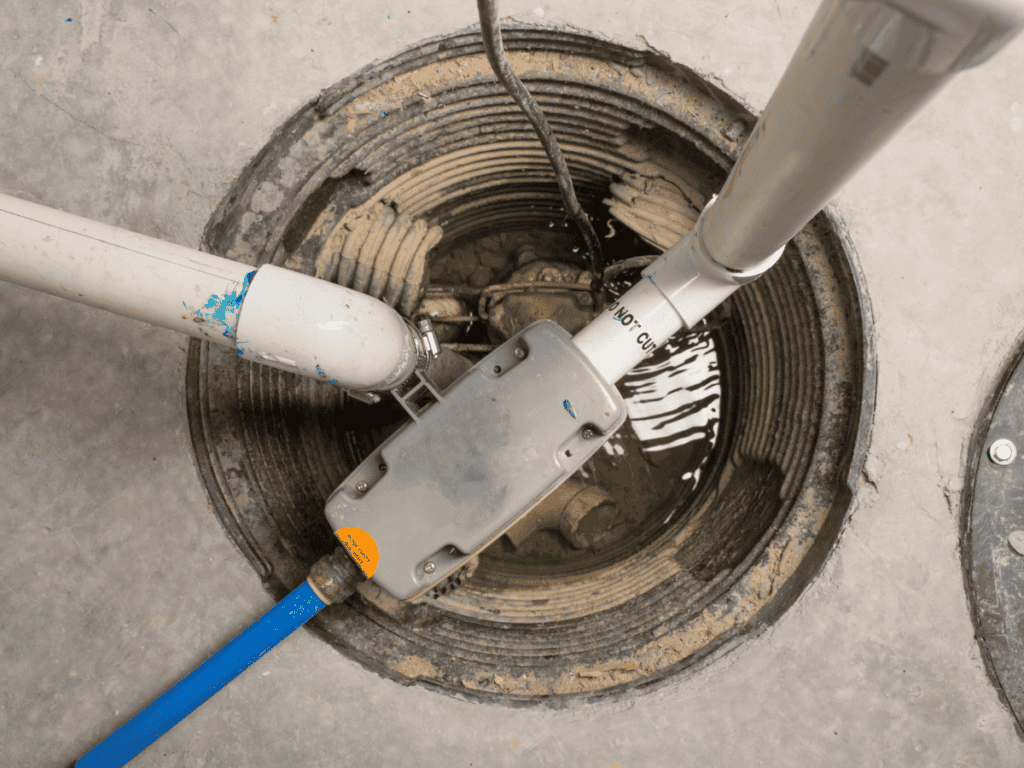You’ve probably heard fellow Boston homeowners praise the effectiveness of their sump pumps after a storm or flash flood. Without it, they’re sure their basement or crawlspace would’ve suffered thousands of dollars in damage. Are they exaggerating or are sump pumps really all they’re cracked up to be?
Whether you’re thinking about installing a sump pump or installing a new one, it’s important to understand the purpose behind these machines. Here, we’re going to unpack what makes sump pumps so important to homeowners so you can make more informed decisions for yourself and your family.
What is a sump pump and how does it work?
A sump pump is a device tasked with removing water from your basement or crawlspace. The name is derived from two key components of the machine. A sump is a constructed basin below the surface level of the floor designed to trap water before it can reach your home and wreak havoc. The second part of a sump pump is the pump itself which transfers water out of the basin into designated discharge lines. From there, the water is usually directed to a creek, pond, drain, or dry well. The main purpose of a sump pump is to prevent rising water from reaching your home so you can rest easy knowing your property is protected.
Interested in learning about what it takes to keep a sump pump running optimally? Read about these important sump pump maintenance tips.
What are the different types of sump pumps?
All sump pumps are designed to remove water before it can damage your home, but not all sump pumps are built the same. There are two main kinds of pumps: pedestal and subversive. Let’s take a look at the primary differences and advantages of each.
Pedestal Sump Pump
Pedestal pumps, as the name suggests, are designed with a pedestal platform where the motor rests. A hose connects the motor to the pump which sits in the basin. As water comes into the basin, it’s pumped through the hose to the drain area. Pedestal sump pumps tend to have longer lifespans than their submersible counterparts because their motors are better protected. Having the motor out of the water also makes for easier and more affordable maintenance. One of the main downsides of pedestal pumps is their noise level.
Submersible Sump Pump
Both the motor and pump are underwater in submersible sump pumps. These powerful options are generally the go-to choice for homes facing serious flooding potential. They’re harder to repair but operate much quieter than pedestal pumps since the motor noise is muffled by the water. A submersible sump pump also saves Boston homeowners a lot of space as the motor is out of the way.
How are sump pumps powered?
Now that you have a better understanding of the different types of sump pumps, let’s explore the various ways these devices are powered.
Electricity
Most sump pumps are hooked up directly to a home’s electrical system. This power source provides a considerable amount of pumping capacity but leaves the unit vulnerable to power outages. If your home we’re to experience a loss of power and simultaneous flooding, your sump pump would switch off, allowing water to enter your home.
Battery
Battery-powered sump pumps are an excellent choice for Boston homeowners concerned about power losses. These devices operate entirely with battery power, ensuring your home is protected even during outages. If you want the best of both worlds, there are electrical sump pumps with battery backups that flip on when there are power issues. This way, you get the power of a standard sump pump with the reliability of a battery-operated model.
Water Pressure
There are some sump pumps that actually aren’t powered at all. In fact, these models don’t even have a motor. Instead of using electricity or batteries, water-powered sump pumps rely on the pressure of municipal water sources to create a vacuum that sucks all of the excess water out of your basin. These pumps typically last longer than electrical or battery-powered models because there are fewer parts that can become damaged.
Do all homes need a sump pump?
Simply put, not all Boston homeowners need to install a sump pump because not all homes are subject to potential flooding. However, 98% of homeowners will experience water damage in their basements at least once during their lifetime. Having a sump pump can protect your property from flash floods, excess rain, and other water-related disasters. Working with a sump pump expert can clear up any questions about your home’s risk-level and needs when it comes to water damage.
Whether you’re experiencing issues with your sump pump or you need to install a new system, the experts at Boston Standard Plumbing can help. We’ve been offering comprehensive plumbing services to Boston homeowners for years. Feel free to contact us to schedule an appointment.

